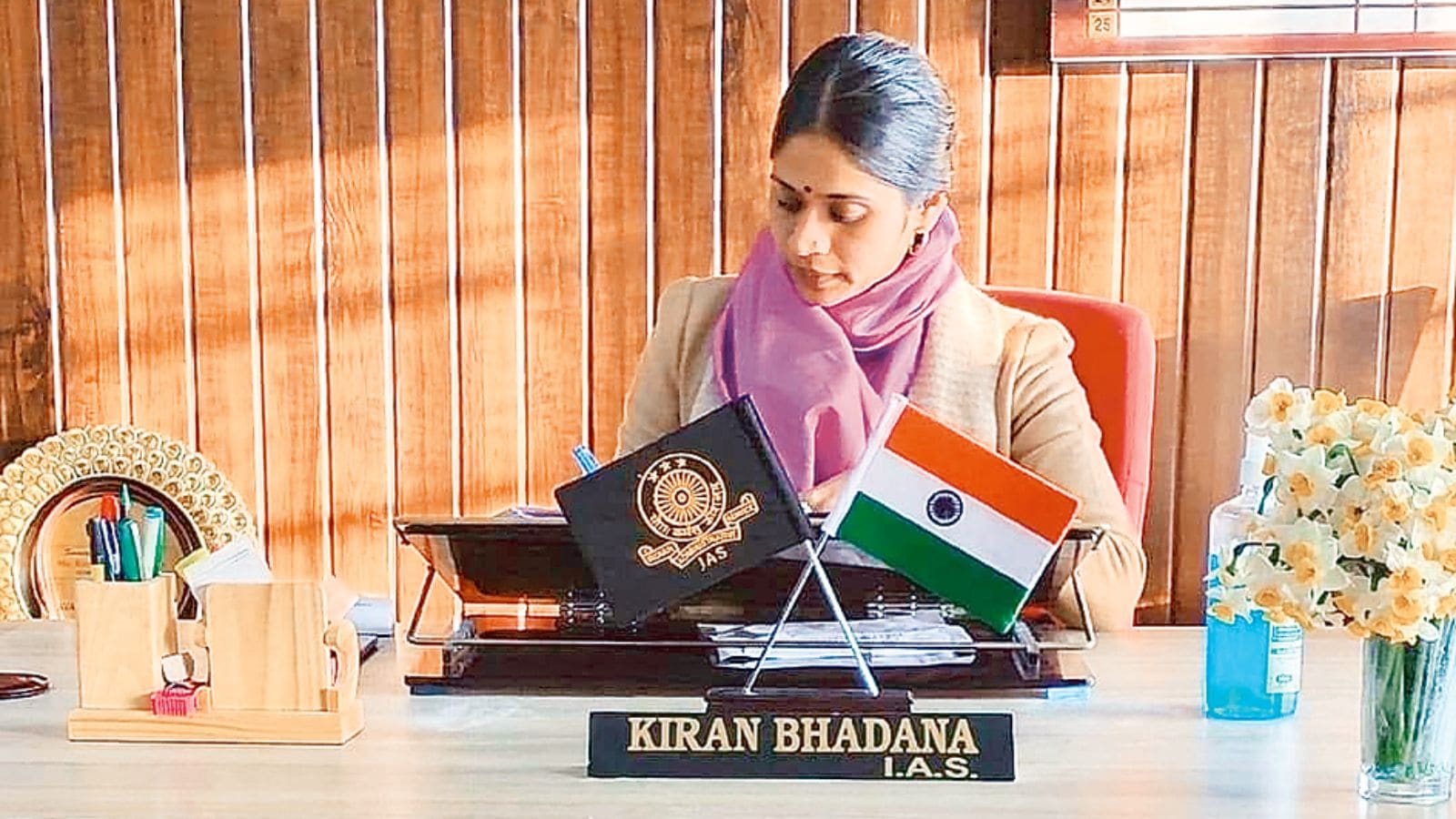In Lahaul & Spiti, all-woman team: MP, MLA, DC, SP, SDM, Zila chief

“Unhone bhi acha kaam kiya hai, par ab mahilaon ki baari hai (The men did a good job, but it’s women’s turn now),” says Shanti Devi, 47, the pradhan of the rural Barbog gram panchayat in Himachal Pradesh’s Lahaul block. With the appointment of Kiran Bhadana, a 2017-batch IAS officer, as the first woman Deputy Commissioner of Lahaul and Spiti on April 27, all seven top governance and administrative posts in the tribal district are now held by women. Chief Minister Sukhvinder Singh Sukhu had last year announced in the Vidhan Sabha his plans to create a women-led district administration on experimental basis. Story continues below this ad SP Ilma Afroz SP Ilma Afroz Coincidentally, the district is also represented by a woman Member of Parliament (MP) — actor Kangana Ranaut — since Lahaul and Spiti falls under the Mandi parliamentary constituency, while Anuradha Rana of the Congress had last year defeated BJP’s Ravi Thakur to become the first woman MLA from the remote Assembly in 53 years. Besides the post of the Deputy Commissioner, the other top positions in the district include those of the Superintendent of Police (SP), Additional Deputy Comm-issioner (ADC), two Sub-Divisional Magistrates (SDMs), Member of Legislative Assembly (MLA) and Zila Parishad chairperson. While Bina Devi is the current Zila Parishad chairperson, in Kaza, the headquarters of the district’s Spiti sub-division, Himachal Pradesh Administra-tive Service (HAS) officer Shikha Simtia is currently serving as both SDM and ADC. Akanksha Sharma was appointed as the SDM of Keylong last week, while Ilma Afroz, a 2018-batch IPS officer, was transferred as the SP of Lahaul and Spiti in March. MLA Anuradha Rana MLA Anuradha Rana Deputy Commissioner Bhadana, who took over from 2016-batch IAS officer Rahul Kumar, the current Deputy Commissioner of Bilaspur, has in the past served as the head of various state departments, including information and public relations. Story continues below this ad Stating that she was aware of the government’s plan to create a district administered entirely by women, Bhadana says, “I had never imagined that I would be a part of this experiment. Interestingly, this is my first posting as a Deputy Commissioner in any district of the state.” MLA Rana is hopeful about the model being extended to other districts in Himachal Pradesh “if this experiment proves successful”. Rana, a resident of Rangcha village near Koksar, says, “I will interact with my administrative colleagues soon. Our objective is to make this tribal area more progressive.” Rana, who had contested the Assembly by-elections in May 2024, also holds the distinction of being the second woman legislator to represent the seat in the Assembly after her rival Ravi Thakur’s mother Lata Thakur, who had won the constituency for the grand old party in 1972. A senior administrative officer at the state secretariat says, “Nearly a decade ago, women held key administrative posts in Sirmaur district. However, Lahaul and Spiti has set a new record by having women as its political leaders too. Chief Minister Sukhu is keenly observing the outcome of this initiative.” Story continues below this ad In the past too, women-centric schemes were first implemented in Lahaul and Spiti, given its status as a classified tribal district. The state’s ambitious flagship scheme, the Indira Gandhi Pyari Behna Sukh Samman Nidhi Yojna, under which eligible women receive Rs 1,500 per month, was first launched in 2023 in the district, which has a population of nearly 40,000. Zila Parishad chief Bina Devi Zila Parishad chief Bina Devi Located in the Himalayas, Lahaul and Spiti, spread over 13,841 sq km, is something of an anomaly in the state. Its barren and difficult terrain, which is surrounded by lofty mountains, makes up 25% of the state’s total land area, but the Assembly segment has the lowest number of electorate — just 25,967 voters. Meanwhile, the initiative has left the locals hopeful of “real change finally taking place on the ground”. Applauding the move, Tenzin Karpa, who served as Keylong’s District Council Officer (DCO) from 2017-22, says, “It is indeed good to see women occupying these top positions. Their appointments have raised local expectations when it comes to the district’s administration. We expect good coordination among these women officers. Many schemes and policies are yet to be implemented due to the lack of coordination among their predecessors.” Story continues below this ad Karpa, who runs a hotel and a home stay in Keylong, says the “first aim” of these officers should be “to settle the hundreds of cases under the Forest Rights Act (FRA), 2006, in Lahaul and Spiti”. A district forest officer explains, “To protect women’s rights in the state under FRA, the government had made it mandatory to add the name of the spouse in the revenue document each time a claim on forest land use is settled in favour of an individual from the Scheduled Tribes (ST) and Other Traditional Forest Dwellers (OTFD). While the rule doesn’t bar the allotment of forest land use under FRA to an unmarried man, the main purpose is to give equal rights to women in tribal areas.” Sunita Thakur, who runs a home stay in Sissu, says she heard about these appointments from local media. “It is a good move, but these women leaders will have to put in the work too. So far, I have not seen any of them on the ground. I hope the results of their work are visible soon.” Unlike her, Barbog gram panchayat pradhan Shanti Devi is more upbeat about this experiment on “women empowerment”. Speaking over telephone, she says, “This change at the top will definitely yield results on the ground. It will also motivate girls and women when they see other women occupying these top posts.”


















